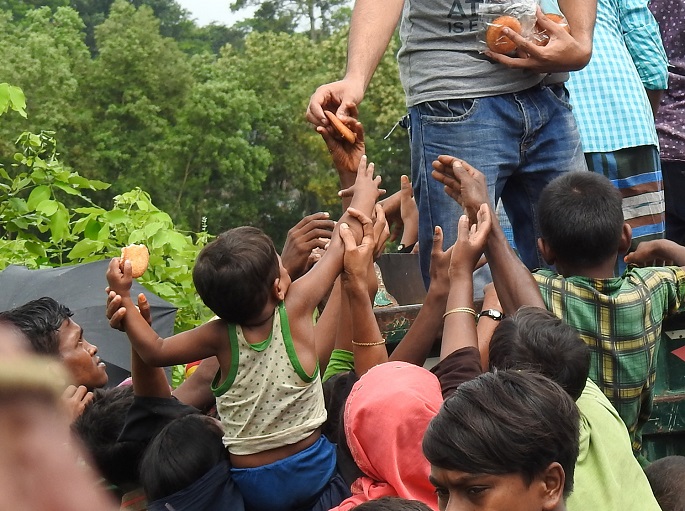Rohingya refugee camps in Bangladesh face funding crisis
Published : 27 Apr 2018, 23:36
Work by aid agencies in Bangladesh's Rohingya refugee camps ahead of the upcoming monsoon and cyclone season is under imminent threat unless urgent funding is secured in the next six weeks, the International Organization for Migration (IOM) warned on Friday.
Joel Millman, IOM's spokesperson, told a press briefing here Friday that without new funding, the lives of tens of thousands of people who flooded into the camps in southern Bangladesh to flee violence in Myanmar triggered in August last year will be put at risk.
IOM figures showed that almost a million Rohingya refugees are currently living under tarpaulins in Cox's Bazar district, on steep, sandy slopes denuded of vegetation.
At least 120,000 have been identified as being at the high risk from floods and landslides triggered by heavy rains, of these 25,000 have been identified as at the highest risk from landslides, the agency said.
Hundreds of thousands of others will also be at risk if roads become impassible and vital aid supplies and medical services cannot get through, it added.
Tarpaulin stocks are also rapidly running out and IOM, which oversees shelter distribution, reports that by mid-May supplies will fall below critical levels.
Other IOM vital services at serious risk unless more financial support is forthcoming include water, sanitation and hygiene activities.
IOM, which has appealed for 182 million U.S. dollars to provide aid in Cox's Bazar through December 2018, said it is currently facing a funding shortfall of almost 151 million dollars.
A related UN announcement said the flow "is the largest refugee movement in the region in decades, and brings the total number of Rohingya living in Cox's Bazar (in Bangladesh) to more than 800,000 people," with the numbers still growing.
The Bangladesh authority, however, estimated the number is more than 100,0000.
A crackdown by Myanmar's army, launched in response to attacks by Rohingya militants on Aug. 25, has pushed vast numbers of refugees from the stateless Muslim minority across the border with Bangladesh. The violence has incubated a humanitarian crisis on both sides of the border


